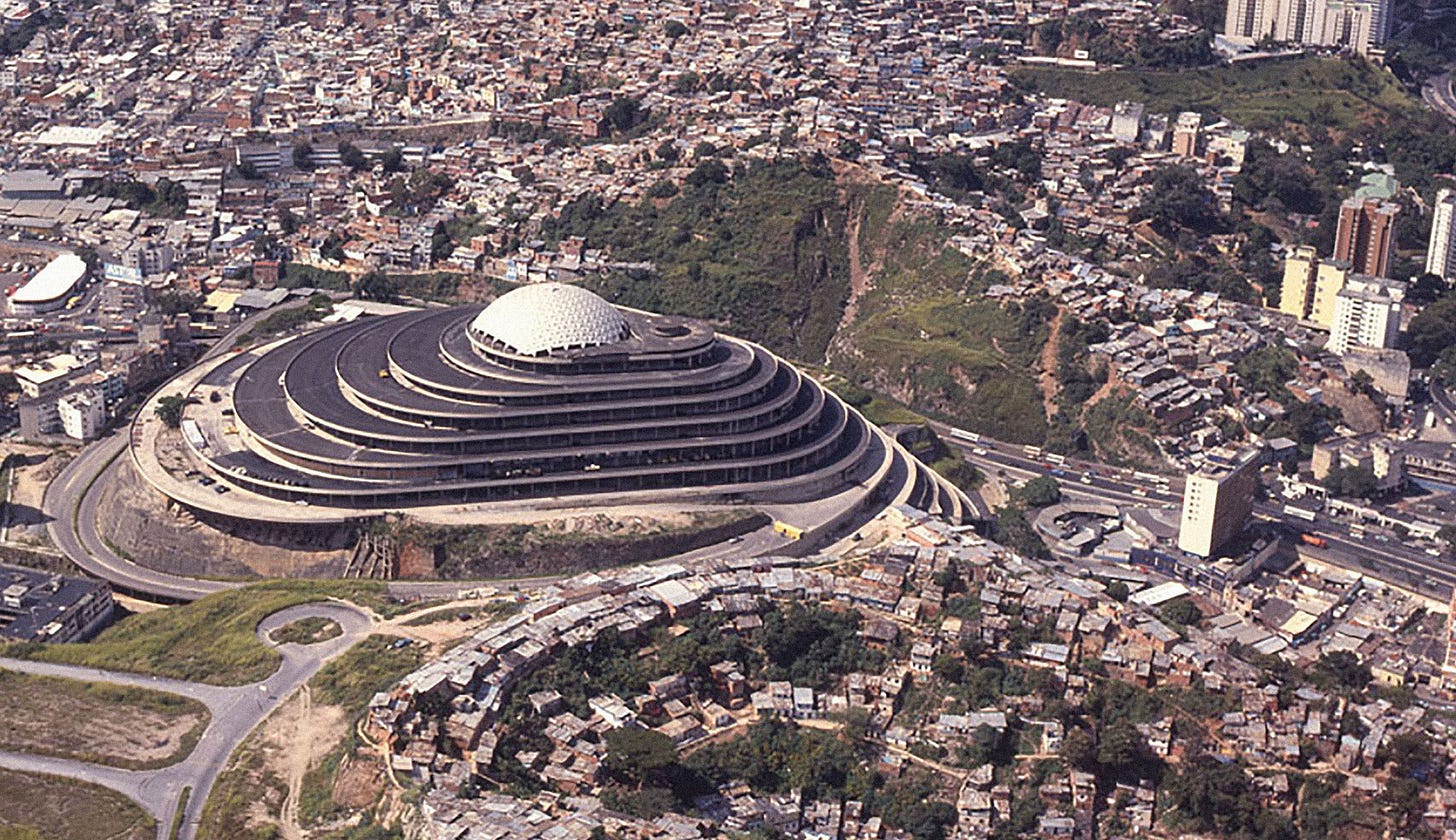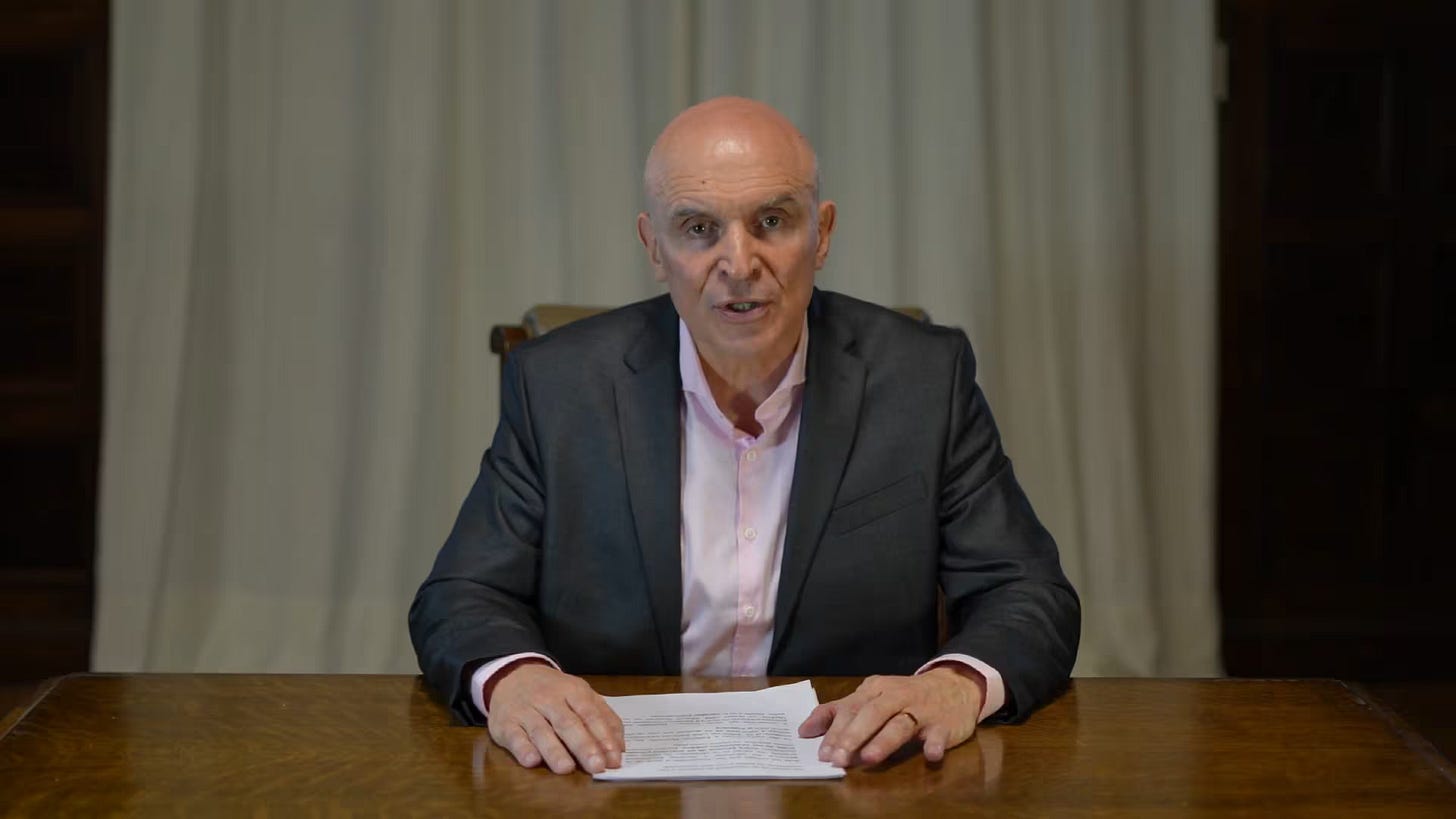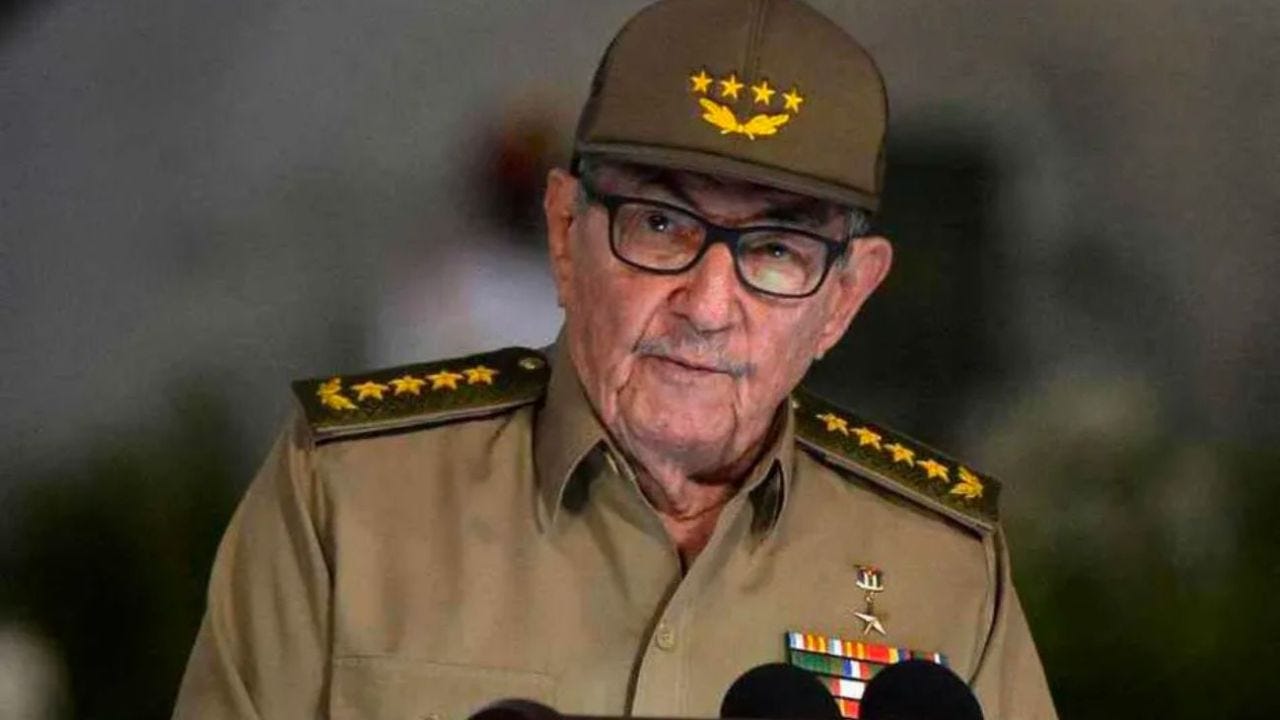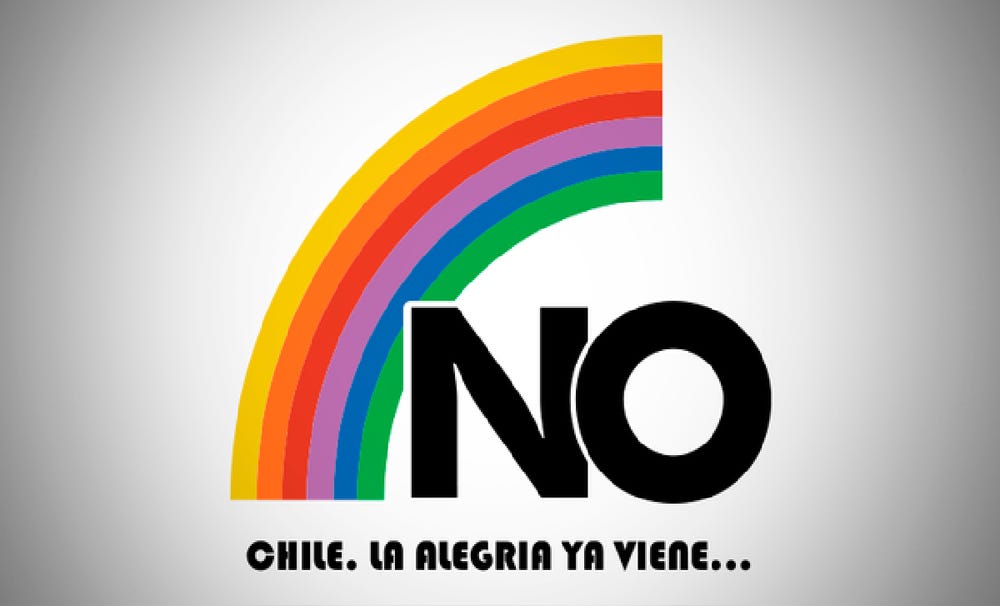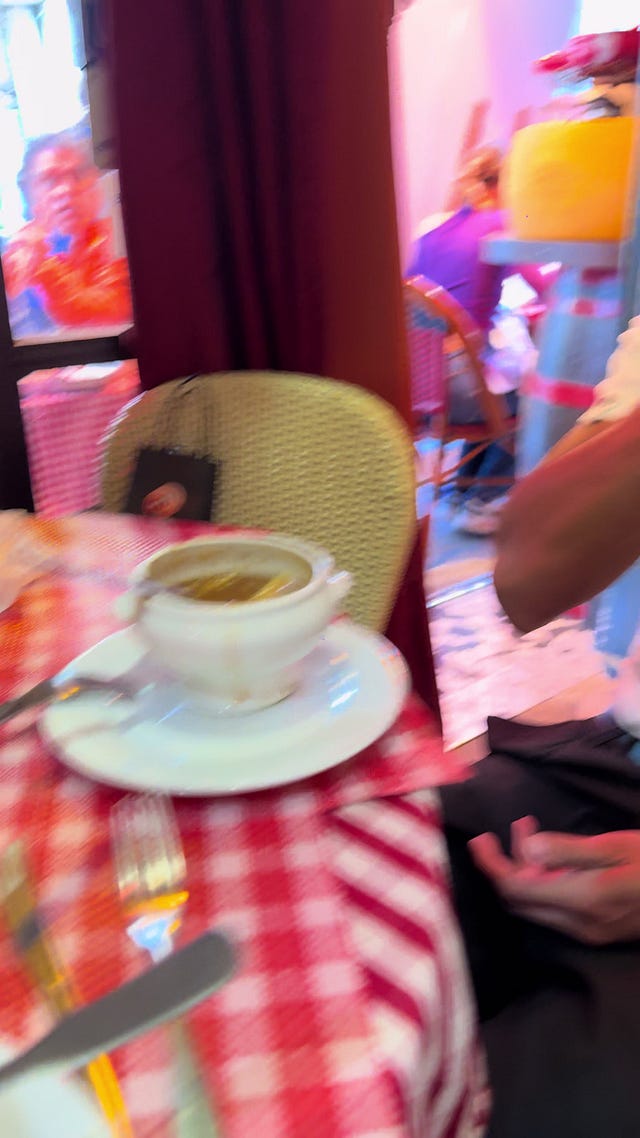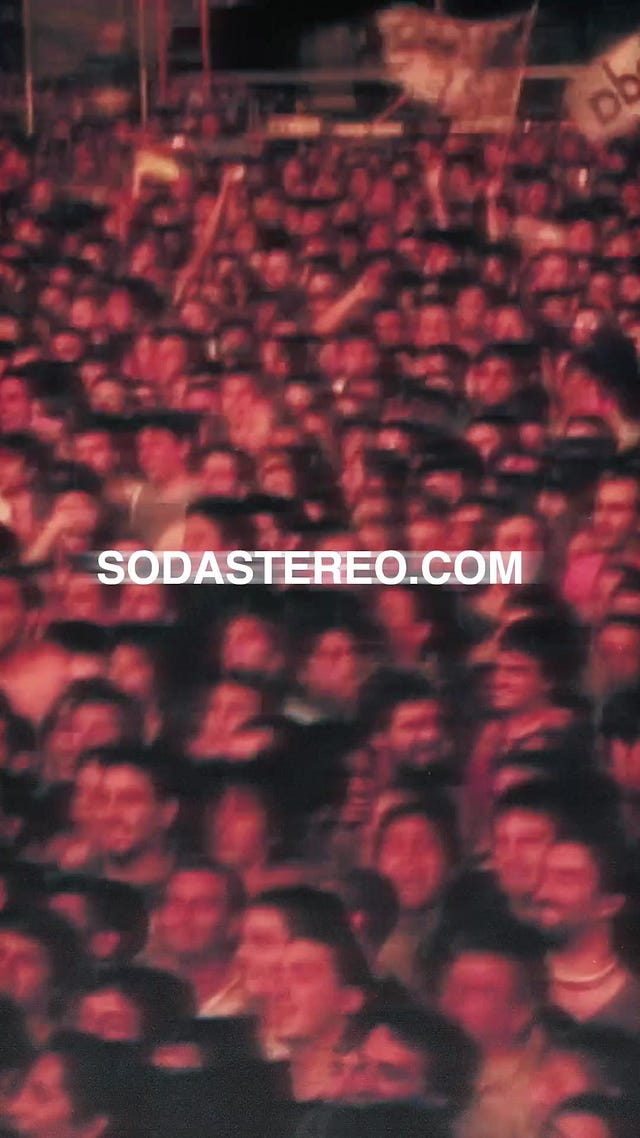The “Christmas” Season Started in Venezuela
I try not to write too much about Venezuela here, leaving space for other countries, but this week was just overwhelming.
Let’s be clear. These headlines about Christmas starting in October are not just jokes. Maduro has been using this as a political strategy for a few years now. It helps distract from bad news, justify questionable decisions, and put on a public show. This year, the choice of location made it clear.
Fireworks exploded over El Helicoide, the SEBIN (National Bicentenary Service of Intelligence) building known for torture and political prisoners. For those familiarized with the Argentinean or Chilean cases, it’s the equivalent of the ESMA in Buenos Aires or Villa Grimaldi in Santiago. Lighting up that place was meant to send a message.
The regime has been trying (and succeeded to some extent) to reshape the country’s identity. Chávez and Maduro have already changed things that once felt permanent, like names, flags, dates, and even the symbols of Caracas. Now, they are changing the calendar too. If they can move Christmas by decree, they can change anything. That’s the point.
This is also happening while tensions with the United States are rising. So what does the regime get from setting off fireworks above a prison? It distracts people and reminds them who is in control. The message is both ‘enjoy the show’ and ‘remember who holds power.’
One more thing: if you work with Venezuelans living in other countries, try not to greet them with a joking “Merry Christmas” in October. That’s not the funny comment you think. People aren’t upset about silly lights; they’re upset about those in power using traditions to cover up what’s really happening.
So where does that leave us? In a familiar situation: a country where a lot seems to be happening but nothing really changes. The standoff with the U.S. adds confusion and risk, but even that, Venezuelans know, can end up in the same deadlock.
The Casta Strikes Back
Another corruption scandal has hit Argentina. José Luis Espert, a libertarian economist who supported Milei’s rise, is accused of accepting $200,000 from a company tied to a Guatemalan drug trafficker. Reports also say this person lent Espert a private jet during his 2019 campaign.
When I lived in Argentina, I volunteered for Espert’s presidential campaign. At the time, I believed in him, or at least in the hope of changing the old political system. That’s why this case feels personal to me. It’s ironic that after years of promising to end corruption, Espert now has to answer for suspicious transfers.
Milei’s reaction is telling. He quickly defended Espert, calling the accusations just another attack. We’ve seen this pattern with other issues in his government, even those involving his sister. The president who promised to remove the political elite is now facing the same scandals he used to criticize, all in less than two years.
All of this is unfolding just weeks before Argentina’s midterm elections. Milei’s party has already lost in Buenos Aires province, and his approval ratings are slipping. Meanwhile, he announced a $20 billion deal with the United States after meeting Donald Trump, but in the heat of this scandal, that major deal is not getting as much attention.
Cuba’s Favorite Rumor Returns
This week, rumors about Raúl Castro’s death spread quickly on Cuban social media. The government stayed silent for days, which only made people speculate more. Eventually, as usual, they showed him alive on state TV, sitting next to Díaz-Canel.
There’s not much mystery here. These rumors come up every few months. The same thing happened many times with Fidel and with Raúl himself. This is how these governments work: they keep control by keeping things secret. They choose when and how people find out information, even about their leaders’ health.
It’s a way to control how people think. When there is no news, that becomes the news, and not knowing what is happening makes people wait for the government’s next update. In this way, spreading false or unclear information is not a mistake in these kinds of governments; it is done on purpose.
This approach is not new. In 2012 and 2013, when Chávez vanished from public view in Venezuela, Cuban intelligence helped control the story until his death was confirmed. The strategy remains the same today.
One difference now is that when Raúl dies, it will not shake up Cuba the way Fidel’s death might have. Díaz-Canel is already in charge, and Raúl’s job is mostly for show. But the habit of keeping secrets is still there, just as predictable as the rumors it causes.
Thirty-Seven Years After the “No”
This week marks 37 years since Chile’s 1988 plebiscite, the vote that ended Pinochet’s dictatorship. Even though it’s not a major anniversary, it still matters. The plebiscite stands out as one of the region’s most important democratic moments and shows that a dictatorship can be ended through voting instead of violence.
This anniversary comes at a tense moment in Chilean politics. The country will hold presidential elections in November, and President Gabriel Boric is not eligible to run again. His government, which emerged from the 2019 protests and once represented a new generation, is now struggling with low approval ratings and internal disagreements. The left is weaker than before, while the right sees an opportunity to gain power. It is concerning that some conservatives are beginning to view the Pinochet era more favorably.
That’s what makes this anniversary important. It’s not just about looking back; it’s a warning about forgetting. Chile’s democracy was rebuilt by people who stood up against a harsh government. If we forget that history, we might start to accept it again.
If you haven’t seen it, check out No, Pablo Larraín’s film about the campaign that defeated Pinochet. It’s one of the best political movies ever made and captures something that still feels urgent: how joy, creativity, and collective courage can overcome fear.
Juan Gabriel Is (Probably) Alive in Paris
 Tiktok failed to load.
Tiktok failed to load.Enable 3rd party cookies or use another browser
Every few months, people online in Latin America start saying Juan Gabriel is still alive. This time, it all began with a TikTok from France that showed an older man in a café who looked just like him. He had the same hair, the same face, and the same calm expression. The video quickly went viral, and soon people were joking that he faked his death and moved to Paris.
Of course, it’s not really him. But the way people react shows how much Juan Gabriel still matters to the region. When my mom told me about his death, it was like she was talking about a family member. For millions of Latin Americans, that’s what he was: someone who could express love, heartbreak, and emotion better than anyone else.
Mexico has always been at the center of Latin American culture, especially for older generations, and Juan Gabriel is a huge part of that story. His songs taught us how to express our feelings openly. If you want to understand us, with all our love, pain, and drama, you should listen to Juan Gabriel. Try starting with his live album at the Palacio de Bellas Artes. It’s one of the best albums ever made in Spanish.
So no, Juan Gabriel isn’t secretly living in France. But the fact that people want to believe it says a lot. Some artists never really disappear. They live on in our memories, and their music keeps playing.
The Follow-Up
Last week I mentioned that Soda Stereo was hinting at something new, and now it’s official: they’re going on tour again. But Gustavo Cerati won’t actually be there. Instead, his image and voice will show up on screens during the show, almost like he’s being brought back with special effects.
Some fans are excited. Others, like my friend and former professor Marcos Valverde, see it differently. He’s one of the best journalism professors in Venezuela, and someone I admire a lot. Marcos told me:
“I don’t really like the idea. Cerati isn’t there. I’m sure it’ll be a good show, but there’s something slightly necrophilic about it that doesn’t sit right with me. Cerati is gone. Those who saw him were lucky. Those of us who didn’t, we missed our chance. But that’s it. This isn’t Soda.”
He’s right. There is something strange about bringing back a band that only really existed when Cerati was alive. I still want to buy a ticket, since I never saw Soda live, but what Marcos said stays with me. This isn’t Soda. It’s just nostalgia in high definition.
That’s all for this week. If you liked what you read, please subscribe.
You’ll get something like this every Sunday: one main analytical piece, three important stories from Latin America, and one media suggestion to help you learn more about our region.
You can also follow me on Instagram, X, and TikTok for more.
Gracias por leer. Hasta la semana que viene.



